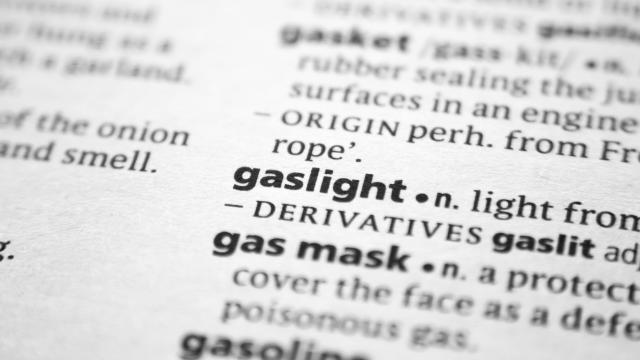As conversations around mental health become more normalised, so does the surface-level way we talk about it on the Internet. According to Merriam-Webster, the word “gaslight” is the dictionary’s 2022 word of the year as the nuance and magnitude of the word has been dulled across cyberspace.
Gaslighting is a form of emotional abuse that can cause a victim to question their own reality and memory of certain events, and Merriam-Webster says that searches of the word saw an explosive 1740% increase in 2022. The word comes from a 1938 play where a man convinces his wife that she is going insane by lying to her that their home’s gas lights are not dimming. It would be easy to argue that the massive increase in searches is fuelled by a heightened understanding of mental health and abuse in our society.
Not so fast, Merriam-Webster also explains that the meaning of gaslighting has taken on a new form that is broader, describing gaslighting as “the act or practice of grossly misleading someone especially for one’s own advantage.” This new definition pales in comparison against the more thorough and clinical definition developed during the mid-twentieth century, which Merriam-Webster also defines as:
psychological manipulation of a person usually over an extended period of time that causes the victim to question the validity of their own thoughts, perception of reality, or memories and typically leads to confusion, loss of confidence and self-esteem, uncertainty of one’s emotional or mental stability, and a dependency on the perpetrator
“The idea of a deliberate conspiracy to mislead has made gaslighting useful in describing lies that are part of a larger plan,” wrote Merriam-Webster in their blog post. “Unlike lying, which tends to be between individuals, and fraud, which tends to involve organisations, gaslighting applies in both personal and political contexts.”
While a barrage of institutions have popularised the word, use of “gaslight” as a term has seemingly soared across social media over the past year, but so have words like “narcissist,” “toxic,” and “trauma.” This mental health lexicon is becoming commonplace in nearly all spaces of the internet, but is most clearly apparent on social media platforms like TikTok — seriously, look at the comments of any TikTok and you can usually find some permutation of this conversation. That’s an issue.
Shannon Thomas, a trauma therapist, told Insider in 2021 that this increase in mental health-coded language is a “double edged sword” — as awareness around issues of abuse and mental health may increase, the meanings of words that describe these issues quickly become watered down by the click economy. Jenna Drenten, a marketing professor at Loyola University Chicago who studies digital consumer culture, echoed these sentiments in the same article.“It has nothing to do with normalizing issues around mental health,” said Drenten. “It has everything to do with maintaining the interest of the internet attention.”
As virality and authenticity fuel outlets like TikTok, struggles with mental health and vulnerability in expressing it are becoming increasingly common — such as uploading a video of yourself crying. Words like “gaslight” and “narcissist” are emotionally fuelled, creating a reaction in the viewer and encouraging engagement, while simultaneously creating a pervasive misunderstanding of the nuanced principles of abuse that this language describes.
